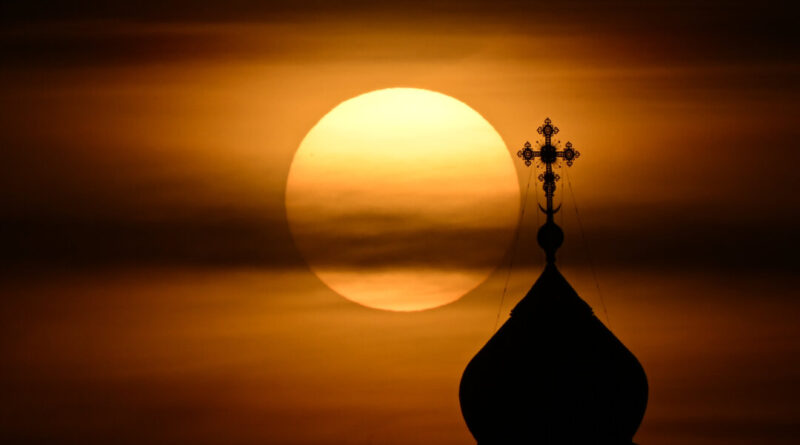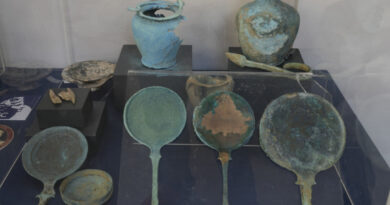Tensions in Moldova’s Orthodox Church Expose Deeper East-West Divide
The autonomous Gaugazia region of Moldova reiterates its hope of strengthening ties with Moscow.
Reports suggest that many priests have switched their allegiance from Moldova’s Moscow-linked Orthodox Church to the Orthodox Church of Romania, believing that Moldova’s future lies with the West.
Vasile Banescu, a spokesman for Romania’s Orthodox Church, mentioned in an April 25 radio interview that this change is indicative of a positive shift within the church.
He stated, “Priests understand that Moldova’s future is with Europe, with Romania.”
Moldova and Romania, both former Soviet republics, have differing affiliations; while Romania is firmly rooted in Western alliances as a member of NATO since 2004 and the EU since 2007, Moldova is not part of either organization. Recently, Moldova was granted EU candidate status, aligning it with the goal of joining the European bloc by the end of the decade.
Moldova’s president, Maia Sandu, a staunch supporter of Western integration, is planning a referendum on EU membership later this year.
Despite Moldova’s geographical position between Romania and Ukraine, the Orthodox Christian community within the country is divided between the Moldova Metropolis and the Metropolis of Bessarabia, with each having distinct political perspectives. The former is linked to the Russian Orthodox Church, while the latter operates under the Orthodox Church of Romania.
Last year, the Moldova Metropolis reaffirmed its connection with the Moscow Patriarchate, resisting ties with the Romanian Patriarchate.
In a significant development, several priests have reportedly switched their allegiance from the Moldovan church to the Romanian church, citing Russia’s actions in Ukraine as a key factor. Maia Sandu has openly condemned Russia’s invasion of Ukraine and has taken steps to distance Moldova from Moscow.
The Gagauz autonomous republic within Moldova, primarily inhabited by ethnic Turks adhering to the Russian Orthodox Church, holds divergent views from the rest of the country. The region, with cultural and religious ties to Russia, favors closer ties with Moscow and recently expressed interest in the Eurasian Economic Union, an economic bloc founded by Russia in 2014.
Overall, the geopolitical dynamics within Moldova, particularly concerning church affiliations and political orientations, reflect a nuanced relationship with Russia and Western entities.



